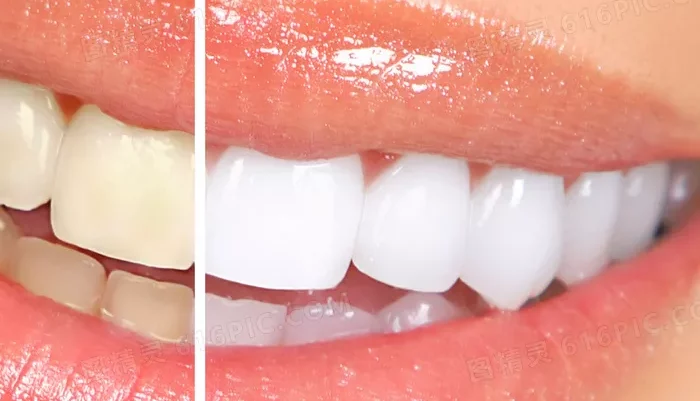Teeth whitening has become a popular cosmetic procedure for those seeking a brighter smile. Many people opt for whitening gels, which can be used at home or provided by dental professionals. However, after using these gels, a common question arises: should you brush your teeth? This article will explore the best practices for oral hygiene following the use of whitening gels, including the effects of brushing, timing, and overall dental care.
Understanding Teeth Whitening
What Are Whitening Gels?
Whitening gels are products designed to lighten the color of teeth. They typically contain active ingredients like hydrogen peroxide or carbamide peroxide, which penetrate the enamel and break down stains caused by food, beverages, and smoking. These gels can be found in various forms, including:
Over-the-Counter Products: Available in pharmacies and supermarkets, these gels are user-friendly and often come with applicators or trays.
Professional Products: Dentists may offer stronger formulations for in-office treatments or as part of take-home kits.
How Do Whitening Gels Work?
Whitening gels work by releasing oxygen molecules that penetrate the enamel and dentin, the layers of the tooth. These molecules break apart the chemical bonds of stains, effectively lightening the teeth. The process may take several applications over days or weeks, depending on the product’s strength and the level of discoloration.
The Importance of Post-Treatment Care
After using whitening gels, proper post-treatment care is crucial for maintaining oral health and maximizing results. This care includes understanding whether to brush your teeth immediately after application.
1. Timing of Brushing
After using a whitening gel, it is generally recommended to wait before brushing your teeth. Brushing immediately after application can interfere with the whitening process and may lead to discomfort. Here’s why:
Active Ingredients: The active ingredients in whitening gels need time to work. Brushing too soon can remove the gel before it has fully penetrated the enamel and achieved its desired effect.
Sensitivity: Many people experience tooth sensitivity after using whitening products. Brushing immediately can exacerbate this sensitivity, leading to discomfort.
2. Recommended Waiting Period
Most dental professionals recommend waiting at least 30 minutes to an hour after applying whitening gel before brushing your teeth. This waiting period allows the active ingredients to work effectively while minimizing sensitivity.
Should You Brush Your Teeth After Whitening Gel
1. Rinse Your Mouth
After the recommended time has passed, you can rinse your mouth gently with water. This step helps remove any residual gel without the abrasiveness of brushing. Rinsing can also help alleviate any mild sensitivity you may experience.
2. Use a Soft-Bristled Toothbrush
When you do brush your teeth, use a soft-bristled toothbrush. Soft bristles are gentler on the enamel and gums, reducing the risk of irritation. A soft toothbrush can effectively clean your teeth without causing additional sensitivity.
3. Choose the Right Toothpaste
Consider using a toothpaste designed for sensitive teeth after whitening. These toothpastes often contain ingredients that help reduce sensitivity and protect enamel. Avoid whitening toothpaste immediately after using a whitening gel, as these products can be abrasive and may lead to further sensitivity.
4. Maintain Regular Oral Hygiene
Continue to practice good oral hygiene after whitening. Brush your teeth at least twice a day and floss daily. Maintaining a consistent oral care routine will help keep your teeth healthy and prolong the effects of whitening.
5. Avoid Staining Foods and Beverages
After whitening, your teeth may be more susceptible to staining for a short period. It is advisable to avoid foods and beverages that can stain your teeth, such as coffee, tea, red wine, and dark-colored fruits, for at least 24 to 48 hours after treatment.
Understanding Tooth Sensitivity
What Causes Sensitivity After Whitening?
Tooth sensitivity is a common side effect of whitening treatments. It occurs when the active ingredients in whitening gels penetrate the enamel and irritate the nerves inside the teeth. Factors that can contribute to sensitivity include:
Concentration of Active Ingredients: Higher concentrations of hydrogen peroxide or carbamide peroxide can lead to increased sensitivity.
Duration of Treatment: Prolonged exposure to whitening agents can exacerbate sensitivity.
Existing Dental Issues: Pre-existing conditions, such as gum recession or enamel erosion, can make teeth more sensitive to whitening treatments.
How to Manage Sensitivity
If you experience sensitivity after using whitening gel, consider the following tips:
Use Sensitivity Toothpaste: Toothpastes designed for sensitive teeth can help alleviate discomfort.
Limit Treatment Frequency: If you experience significant sensitivity, reduce the frequency of whitening treatments.
Consult Your Dentist: If sensitivity persists or worsens, consult your dentist for advice and potential alternative treatments.
When to Seek Professional Help
While many people can safely use whitening gels at home, some individuals may require professional guidance. You should consult your dentist if:
You have a history of dental issues, such as cavities or gum disease.
You experience severe or prolonged sensitivity after treatment.
You are unsure about the best whitening method for your teeth.
A dentist can assess your dental health and recommend safe and effective whitening options tailored to your needs.
Conclusion
In conclusion, the question of whether to brush your teeth after using whitening gel is important for maximizing results and maintaining oral health. It is generally advisable to wait at least 30 minutes to an hour before brushing to allow the active ingredients to work effectively and to minimize sensitivity.
After using whitening gel, rinse your mouth, use a soft-bristled toothbrush, and opt for sensitivity toothpaste. Maintaining good oral hygiene and avoiding staining foods can help prolong the effects of whitening. If you experience significant sensitivity or have concerns about your dental health, consult your dentist for professional advice.
Related topics:

